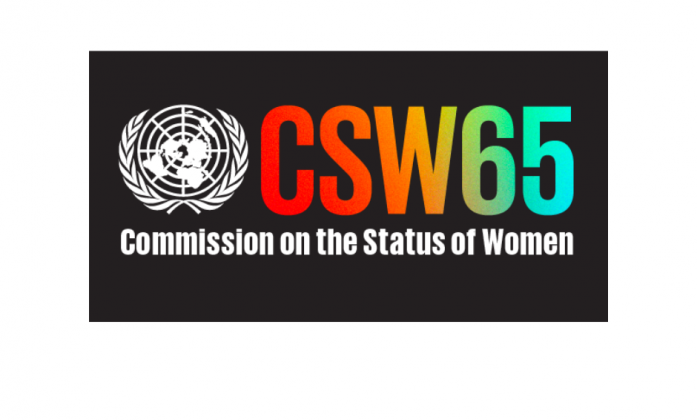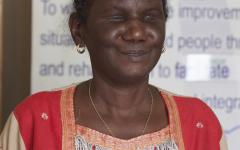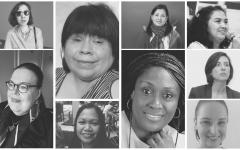CONTENT:
- Read CSW65 Agreed Conclusions here.
- Watch the statement by Ana Peláez Narváez, representing the European Disability Forum as a member of the International Disability Alliance for the Sixty-Fifth Commission on the Status of Women in 2021 here.
- Learn more about the Commission on Status of Women (CSW) here.
- Find the list of CSW 65 side events here.

The right of political participation of women with disabilities
Parties to CEDAW are obliged to eliminate discrimination against women in political participation. Parties to the Convention on the Rights of Persons with Disabilities are obliged to ensure that persons with disabilities can effectively and fully participate in political and public life on an equal basis with others. These include the right and opportunity for women with disabilities to vote and to be elected.
Women and girls with disabilities face the impact of discrimination at the intersection of disability and gender. They are disproportionately underrepresented and largely invisible in public decision making. Power imbalances result in fewer opportunities to establish or join organisations, political parties and unions that can represent their experiences and requirements both as persons with disabilities and as girls, youth, women or older women, and mothers and sisters and partners of persons with disabilities.
The European Economic and Social Committee reported in 2020 that millions of persons with disabilities in the European Union have no possibility to vote because of states’ physical and organizational barriers, such as inaccessible voting procedures and inaccessible polling stations. And in 14 countries of the European Union, laws remove the voting rights of persons with disabilities under guardianship. This denial is discriminatory and results from historic segregation and stigmatization.
Many constitutions[1] and even a regional human rights treaty[2] permit disenfranchisement of persons with disabilities on grounds of “mental capacity.” Just last month, the European Court of Human Rights again ruled against two applicants with disabilities who sought recognition of their right to vote in spite of guardianship laws. Women with disabilities cannot exercise their right to political participation as long as such laws hold us back.
Organizations of women with disabilities around the world are demanding their place and space in all aspects of political participation, from accessible campaigns, debates and voting procedures, to the right to run for election. The empowerment of all women cannot happen without women with disabilities.
This statement was delivered via video message by Ana Peláez Narváez, representing the European Disability Forum as a member of the International Disability Alliance for the Sixty-Fifth Commission on the Status of Women in 2021. Ana Peláez Narváez is also a member of the UN CEDAW Committee, and a woman with a disability.
ECOSOC Accredited:
- AGE Platform Europe
- Down Syndrome International
- European Disability Forum
- European Network on Independent living limited
- European Union of the Deaf
- HelpAge international
- Human Rights Watch
- International Disability Alliance
- International Federation for Hydrocephalus and Spina Bifida - IF
- International Federation of Hard of Hearing People (IFHOH)
- Licht Für Die Welt – Christoffel Entwicklungszusammenarbeit (Light for the World)
- Pacific Disability Forum
- World Blind Union
- World Federation of the Deaf
- World Federation of the Deafblind, The - WFDB
Non- Accredited:
- All Tribal Disables Union Manipur (ATDUM)
- Egypt Federation of Associations of Persons with Disabilities
- Federation of Organizations For Persons With Disabilities In Swaziland (FODSWA)
- National Indigenous Disabled Women Association Nepal (NIDWAN)
[1] See, IFES, 2014, Equal Access: How to Include Persons with Disabilities in Elections and Political Processes: https://www.ifes.org/sites/default/files/equal_access_how_to_include_persons_with_disabilities_in_elections_and_political_processes_2.pdf
[2] Inter-American Convention on Human Rights, Article 23: https://www.oas.org/dil/treaties_B-32_American_Convention_on_Human_Rights.pdf

